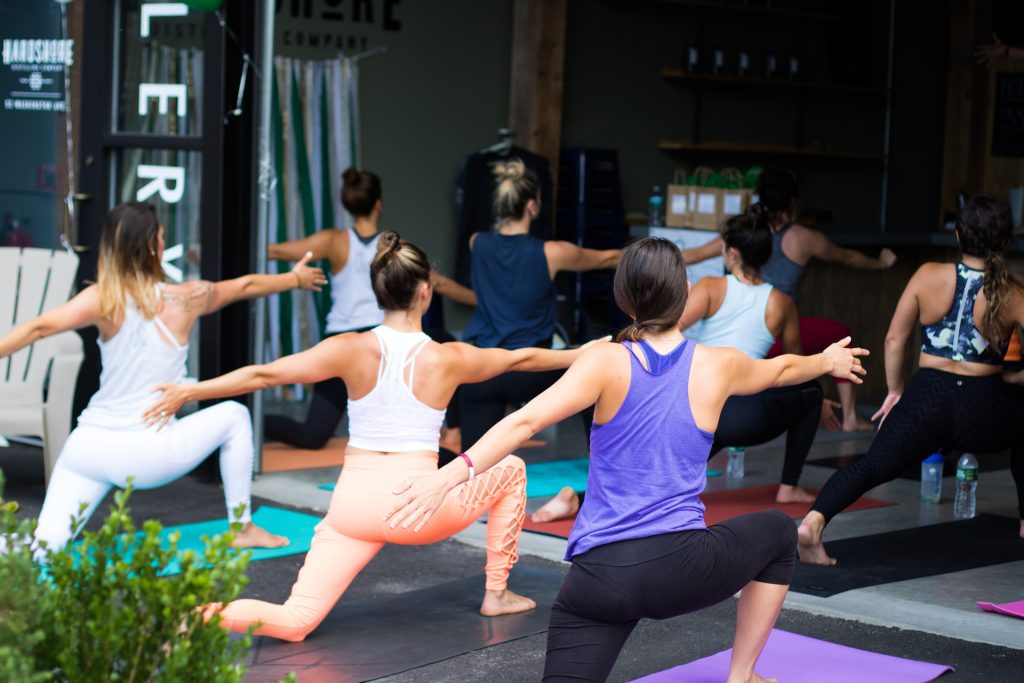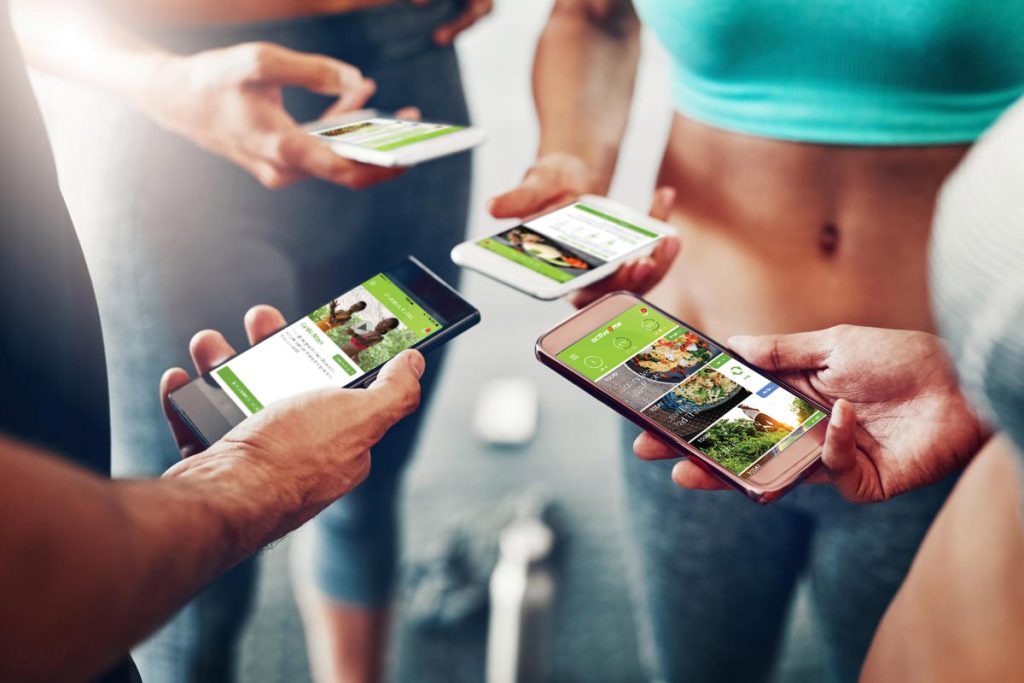With the Covid-19 induced work-and-shop from home lifestyle upon us, the awareness of mental wellness seems to finally be coming to the forefront of the corporate world. However, many organizations are still struggling to understand how they can effectively support mental wellness, both for their customers and their employees.
Given that mobile technology is the fastest growing area of digital tech, it seems the use of digital tools to deliver overall health and wellbeing for customers and employees is the obvious solution.
But is providing a meditation app or promoting mindful lunches the answer to preventing what the World Health Organisation (WHO) sites as a US$1 trillion burden?

Your key to unlocking mental wellness support
With mental health being a buzz word in the wellness world, it seems easy to think that a little meditation and mindfulness will ‘fix’ mental health. However, that overlooks the depth of the issue, and the massive impact physical health has on mental wellness and vice versa.
With 45% of consumers concerned about their mental health as a result of Covid-19 and the fact that it affects nearly all aspects of our lives – from nutritional choices, sleep and exercise habits to how focused and productive we are at work, it’s time to seriously consider the impact of NOT investing in wellness.
A meta-analysis by the American Heart Association showed that those with poor mental health and mental illness have an increased risk of stroke, type 2 diabetes, and heart disease. These chronic diseases are a burden in the lives of individuals, employers, and healthcare systems. However, the research concluded that the opposite is also true. By improving physical health with regular exercise, mental health can improve dramatically.
Regular exercise can improve your sleep cycles (poor sleep can be a big contributor to declining mental health), regulate stress hormones, boost your mood, and improve your mental clarity. In fact, studies have found that exercise can also improve self-esteem and curb social withdrawal.
Beyond the benefits of exercise on mental health, with almost 50% of people suffering from mental health issues in their lifetime, it is costing businesses billions in lost workdays and placing financial burden on families.
Now, more than ever, is the time for corporates to be engaging consumers and employees with holistic wellness programs, like the Active8me app that offers an integrated solution to health, not just band-aid fixes to one area of health.
Making wellness accessible

With it clear that physical health can be a precursor or a preventor of mental illness, organizations have the opportunity to educate, empower and truly invest in both their customers and employees. They can achieve this by meeting people where they are spending most time, on their mobile phones.
The WHO sites that one of the biggest hurdles in treatment of mental health is the access to solutions. Yet, this gap can be easily closed with the use of digital technologies, with one study finding that over 67% of people with severe mental illness looked favourably upon mobile phone technology to support various components of health care.
Just like mental wellness (or illness) is not a one-size-fits-all, apps that deliver wellness programs need to ensure they offer a personalised solution. Active8me, an app that’s like having a personal trainer, dietician, and life coach in your pocket, offers exactly that – customised programs designed by experts and dietician-approved healthy recipes that can be adjusted to suit individual tastes and cultural preferences.
Active8me recognizes mindset and physical health are intrinsically linked and factors in activities that refocus thinking around nutrition, exercise, lifestyle, and habits.
In current times, it makes good business sense to invest in an application that can be used anywhere, anytime, as opposed to the scheduled ‘lunch time yoga meditation class’ within the workplace.
A wellness program that incorporates both physical and mental health can improve employee productivity as well as heightening brand engagement and loyalty with customers. This is highlighted in consumer research identifying that 68% of customers stop purchasing from a company because they feel they don’t care!
Given the cost of attracting and retaining customers, showing you care about your customers’ mental wellness is a worthy investment in their wellbeing AND your bottom line. But simply providing access is not enough…

Creating a culture that supports both mental and physical health
Recent research has found that one of the biggest barriers to feeling healthier and happier is workplace culture. Similar results are found in the wellness community, with ‘support’ being the critical factor to successful health transformations.
Covid-19 is proving that community involvement and interaction is more important than ever for mental wellbeing. With social isolation and loneliness being linked to 50% greater risk of cardiovascular events, any solution to improving mental wellbeing needs to incorporate inclusivity and connection.
Active8me is an app that can be white labelled for organizations to take ‘ownership’ of the social aspect of health and wellness.
How do you know if a wellness program is actually improving mental health?
The simple fact is, improving physical health is proven to improve mental health.
Sleep, water intake and nutrition also play a role in handling stress and overall mental wellness. In fact, studies suggest that a balanced diet, containing vegetables, fruits, whole grains, oily fish, extra virgin olive oil, legumes, and raw nuts, can reduce the risk of depression by 32%, compared to eating a more ‘western’ diet of processed foods.
The convenience of the highly processed ‘western’ diet is hard for any busy person to combat. So, supplying access to dietician-designed recipes and meal plans that can be personalised and adjusted to regional preferences, like those found in the Active8me app, is another tool in the kit to mental wellness.

Tracking progress helps modify behaviours
Personal informatics – the collection, tracking and reflection of your own personal data, has become common place. Self-tracking applications have proven effective in promoting physical activity, weight loss, improving sleep habits and productivity. One study looking at college students found tracking stress relieving behaviours made it easier to spot patterns that lead to declining mental health.
The Active8me app allows individuals to track their water intake, sleep habits, hours of exercise, calorie, nutritional proportions, and moods with simple check boxes. Tracking empowers people to look for the red flags in their behaviours and gives them the knowledge to take action. It also allows organisations to collect data (holistically) to follow trends of engagement with the app, meaning they can prioritise and focus on the needs of their customers or employees.

How are you supporting the mental wellness of your customers and employees?
Focusing on ‘just’ mental wellness or ‘just’ physical health will never give the long-lasting result of health and wellness. Supporting mental wellness is about supporting an individual’s health as a whole. Making holistic health easily accessible, personalised, socially connected and with tracking or feedback/ coaching can be achieved through expertly designed apps, like Active8me.
As an organisation, the endpoint is to be productive and profitable. Improving mental wellness for employees and customers will benefit both the individual and your bottom line. Promoting, supporting, and enabling healthy, active living for your customers or employees can be achieved through the effective use of digital technology. Resulting in increased productivity, less absenteeism, greater self-worth and self-efficacy. With the Active8me app you’re providing an expertly designed safe place to achieve this anytime, anywhere.












